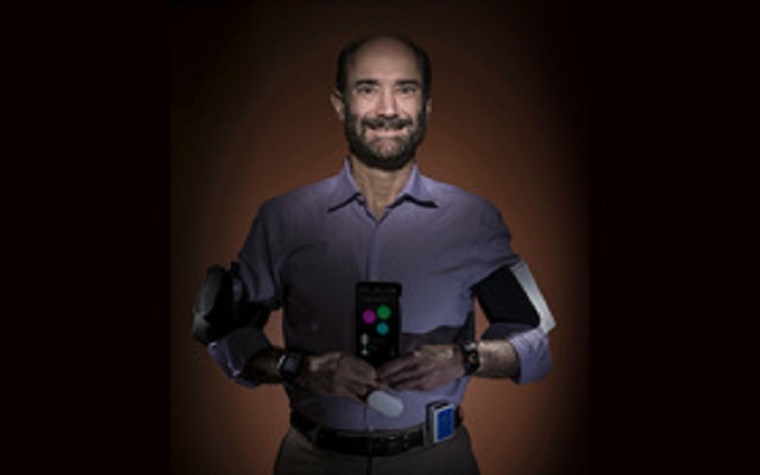
Volunteers are helping geneticist Michael Snyder and his team advance gadgets such as fitness trackers, smartwatches and wearable health trackers that may one day be able to track diseases including diabetes, Lyme disease and even the common cold before diagnoses are made by doctors.
"One way to look at this is, these are the equivalent of oral thermometers but you're measuring yourself all the time," said Snyder. He released a report last week to the journal PLOS Biology on which he was senior author.
To determine if something is wrong, the wearables need to be personalized and learn what the individual’s normal data is. Some volunteers working with Snyder are wearing up to eight different wearables to track conditions such as heart rate, skin temperature, calories expended and exposure to radiation. The trackers have already found that blood oxygen levels decrease as altitudes increase on flights, causing fatigue; however, on long flights, the body seems to adjust and the blood oxygen begins to increase toward the end of the flight.
Medical technology specialist Dr. Atul Butte from the University of California-San Francisco cautioned these devices will likely be used more for science than in the public.
"This kind of approach is going to help science more than the general public," Butte said. "Remember, the baseline is always in motion. We're always getting older. We're always exposed to things. Just because there's a deviation doesn't mean it's abnormal."